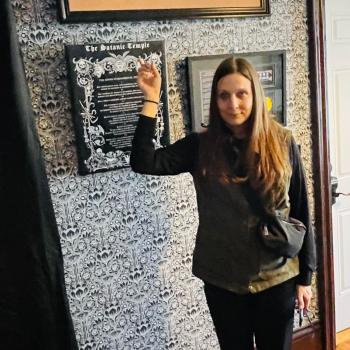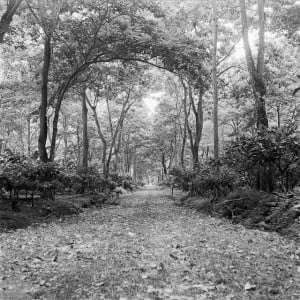From the top of the ziggurat, the city was quiet. The setting sun was golden on the mud bricks. A blue haze of cooking fires softened the city’s edges. Within the temple, music played to honor my Goddess, Inanna, Lady of the Evening star.
But what might that music have sounded like?
We cannot know exactly. The Sumerians and Babylonians left the lyrics but not the notes of their songs. They left beautiful lyres and pipes in royal tombs, but the hands that mastered them are dust.
But just as some Pagans have made it their life’s task to recreate the ancient religious practices as best they can, or heed the call of ancient Deities in ways most comfortable to the modern mind, so too have modern musicians sought to recreate the ancient music of old Sumer and Babylon. The Gold Lyre of Ur, a charitable program set up to recreate an authentic, playable version of the vandalized Gold Lyre of Ur, spearheaded the project. The Flood is the result.
https://www.youtube.com/watch?v=OWWooExURkoAvailable now on iTunes for download, and on CD for January delivery, The Flood is the first full-length album of these ancient songs.
I love the story of how the album was created. As they tell it on their own Web site:
When they came together to make the album, none of the group had a precise plan or firm idea of what to expect from the collaboration – they just met in a little medieval church near Andy’s house, with a collection of ancient lyres, a box of random resonant metal objects, some Mesopotamian poems and a stack of recording equipment, and started to improvise!
They leave out of that quick description the years of work that went into creating the instruments, the years that singer Stef Conner performed and studied before tackling the task of resurrecting a dead language and melodies.
To me, the songs sound somehow familiar. Somehow Greek and Arabic, Persian and passionate, yet with a bluesy ache that would sound at home in a Delta bar. Right, then, for music that arose in the Fertile Crescent. Right for a culture that sang of a great flood before Noah, of serpents in trees before Eve, and in the millennia before Easter, of a Goddess who hung dead in the underworld for three days and then arose, more powerful than before.
I loved the shimmering title track, taken from the Flood description in the Epic of Gilgamesh. But it was the Song to Ishtar that moved me most. I did not just hear that song, but felt it, deep inside. It was as though my heart swelled against my ribs, cracking them open, and the power of the melody rose up my spine and through my crown. And I ached for a lost city, a lost time.
For that time when a past self I have seen only dimly stood on temple steps and looked out over a city slowing into evening. Then turned inside to serve.















